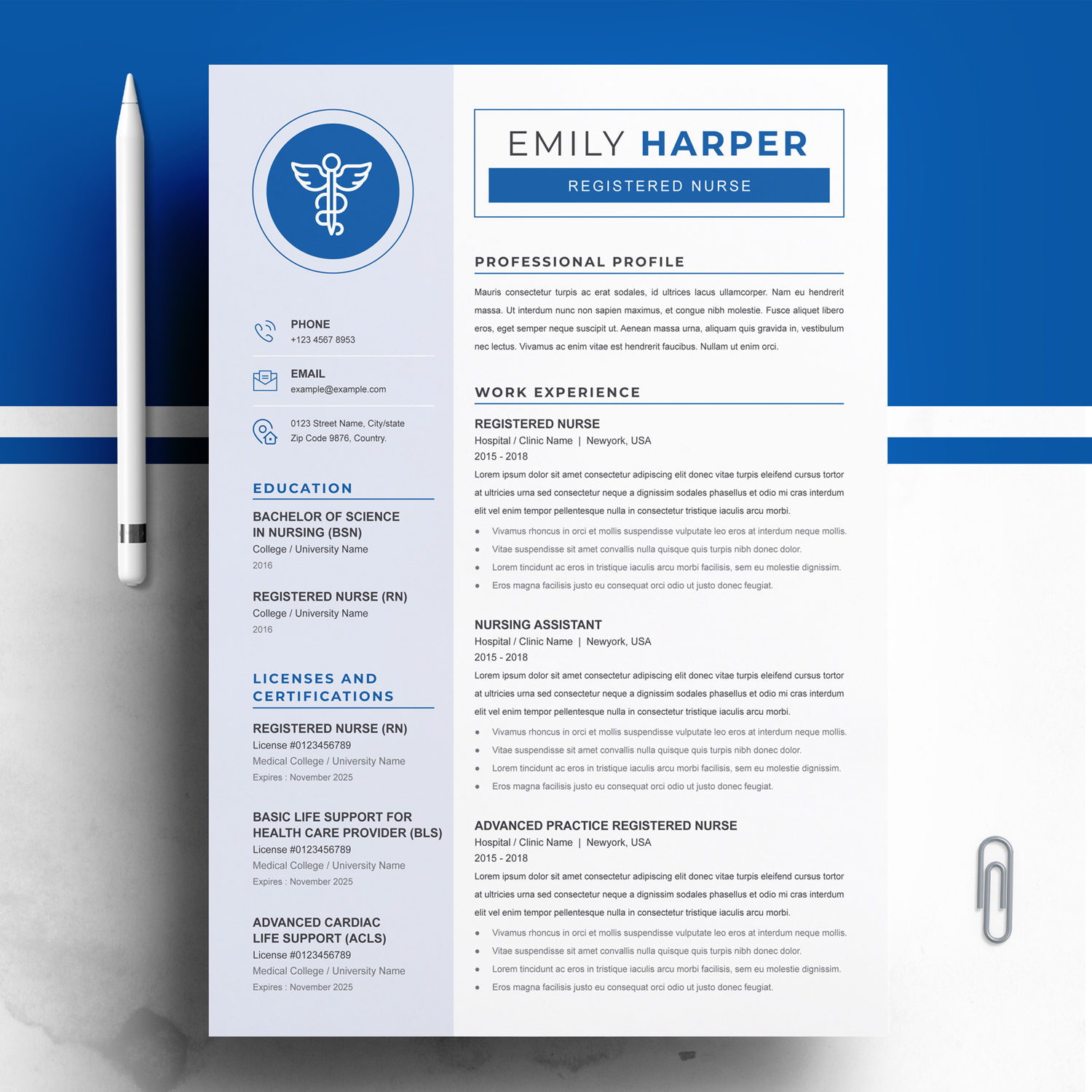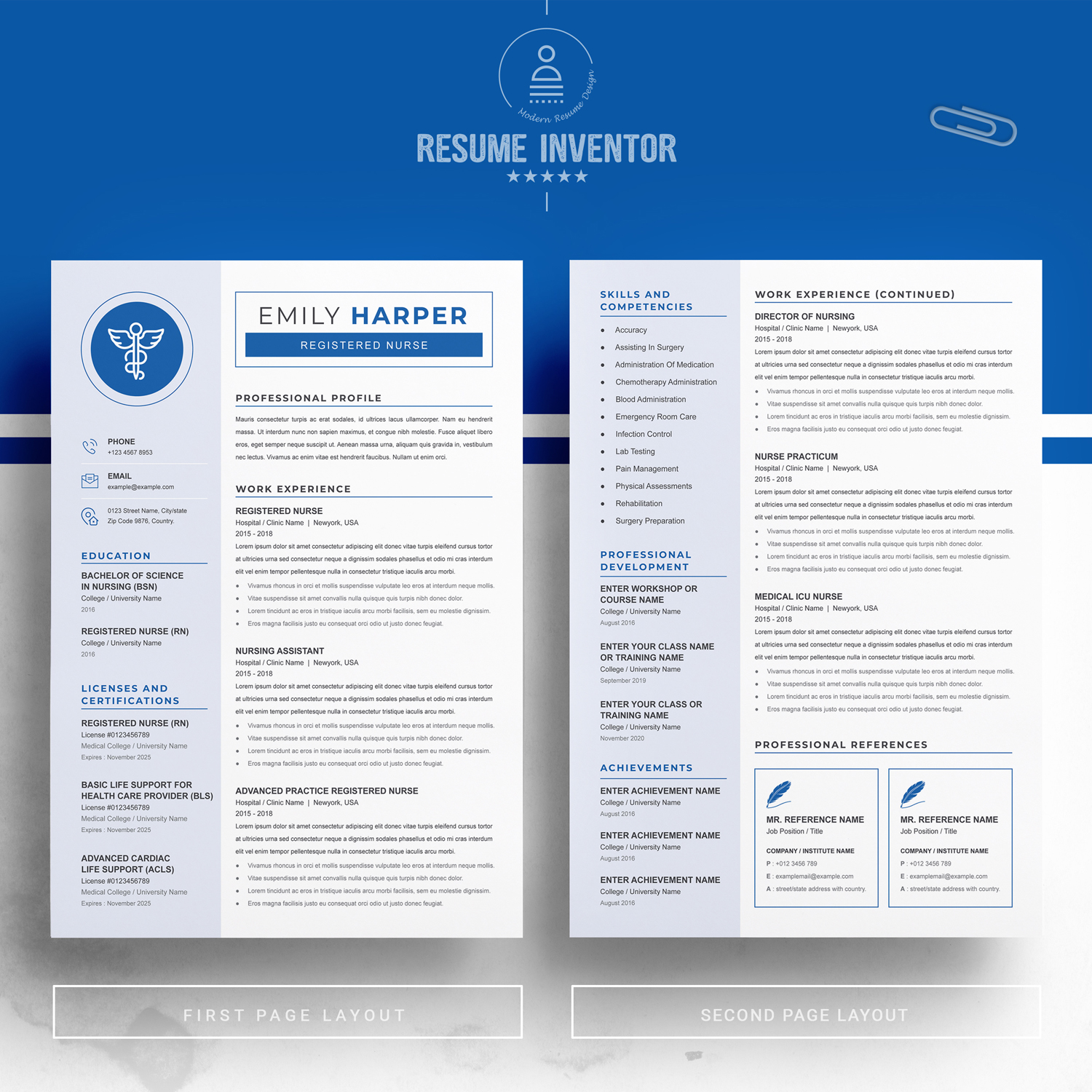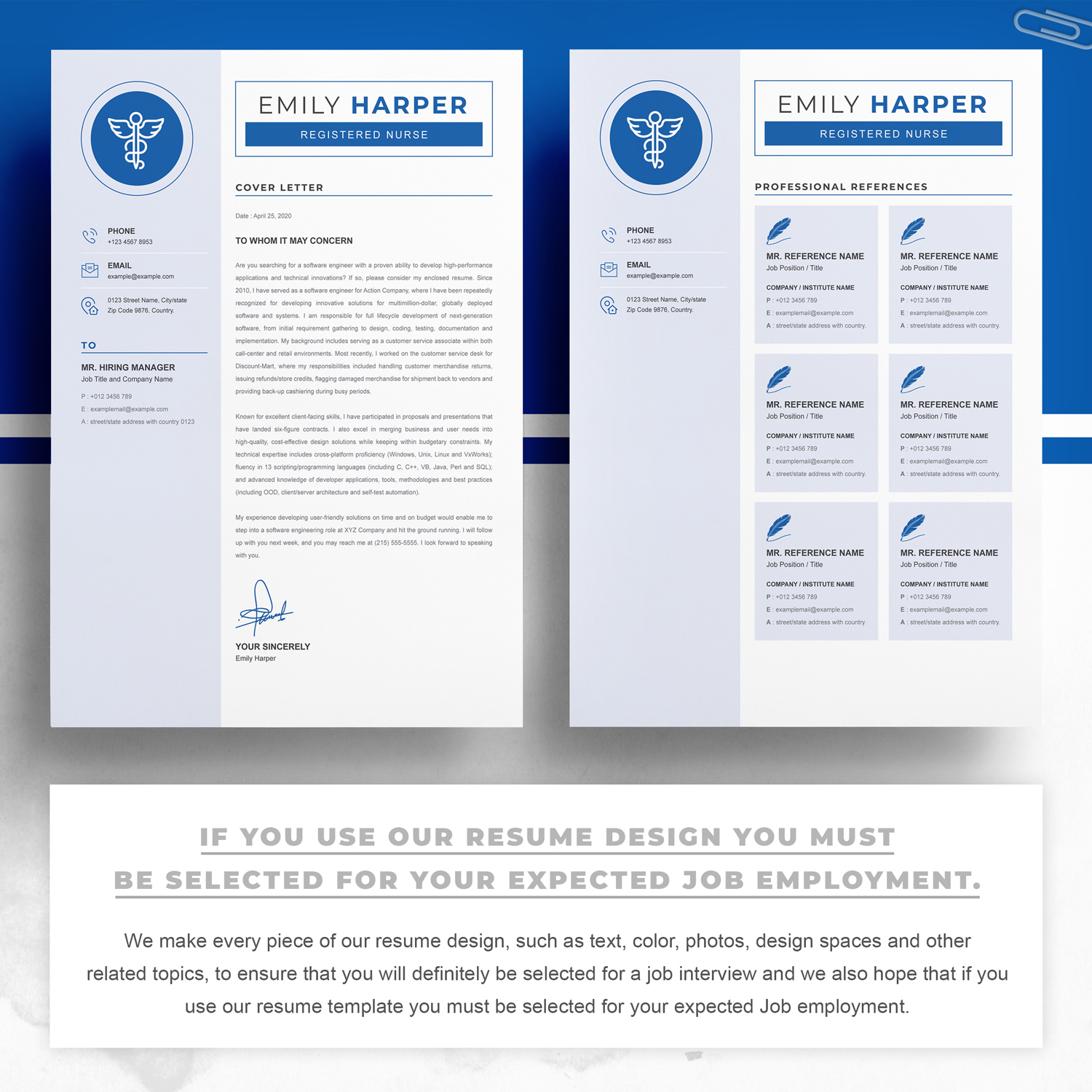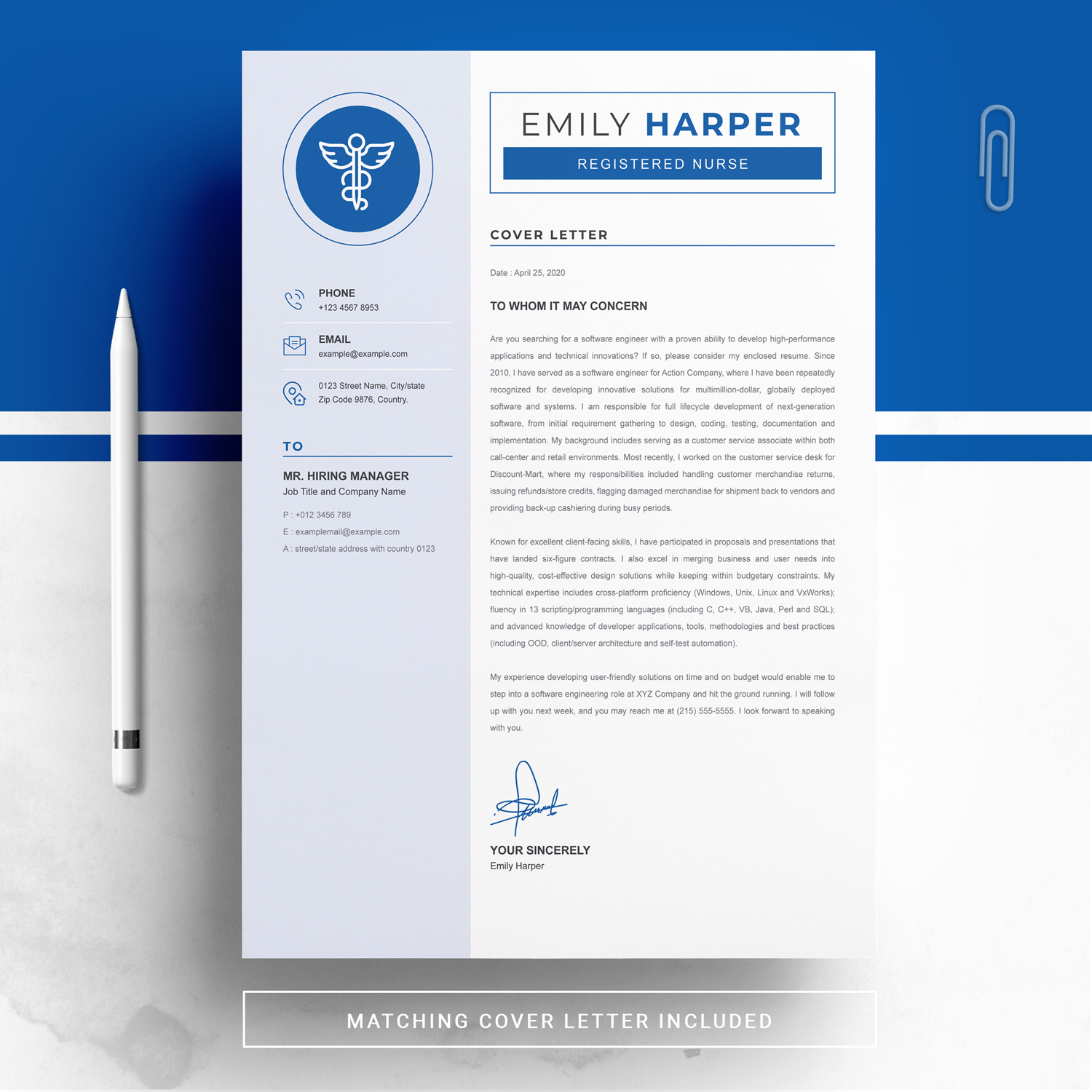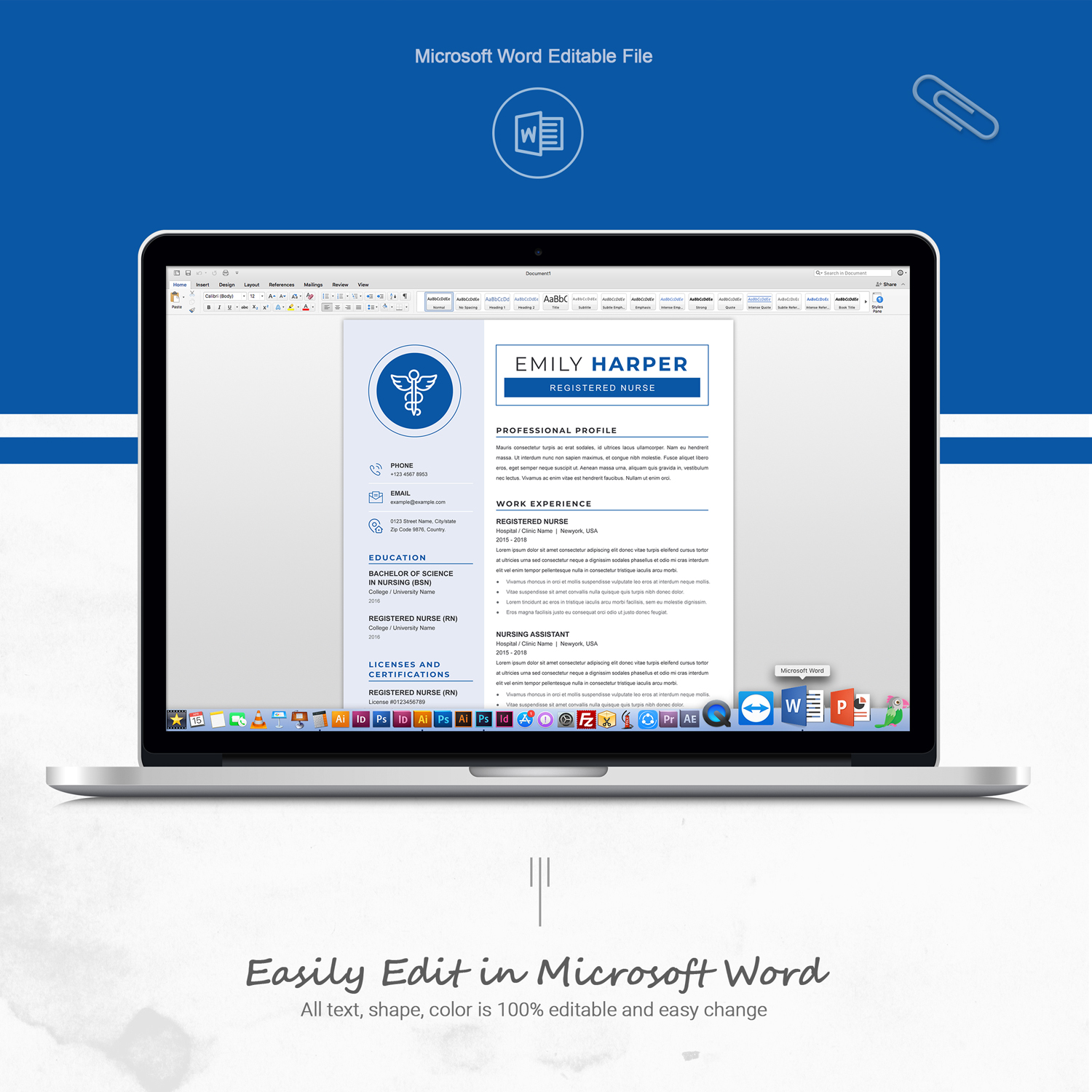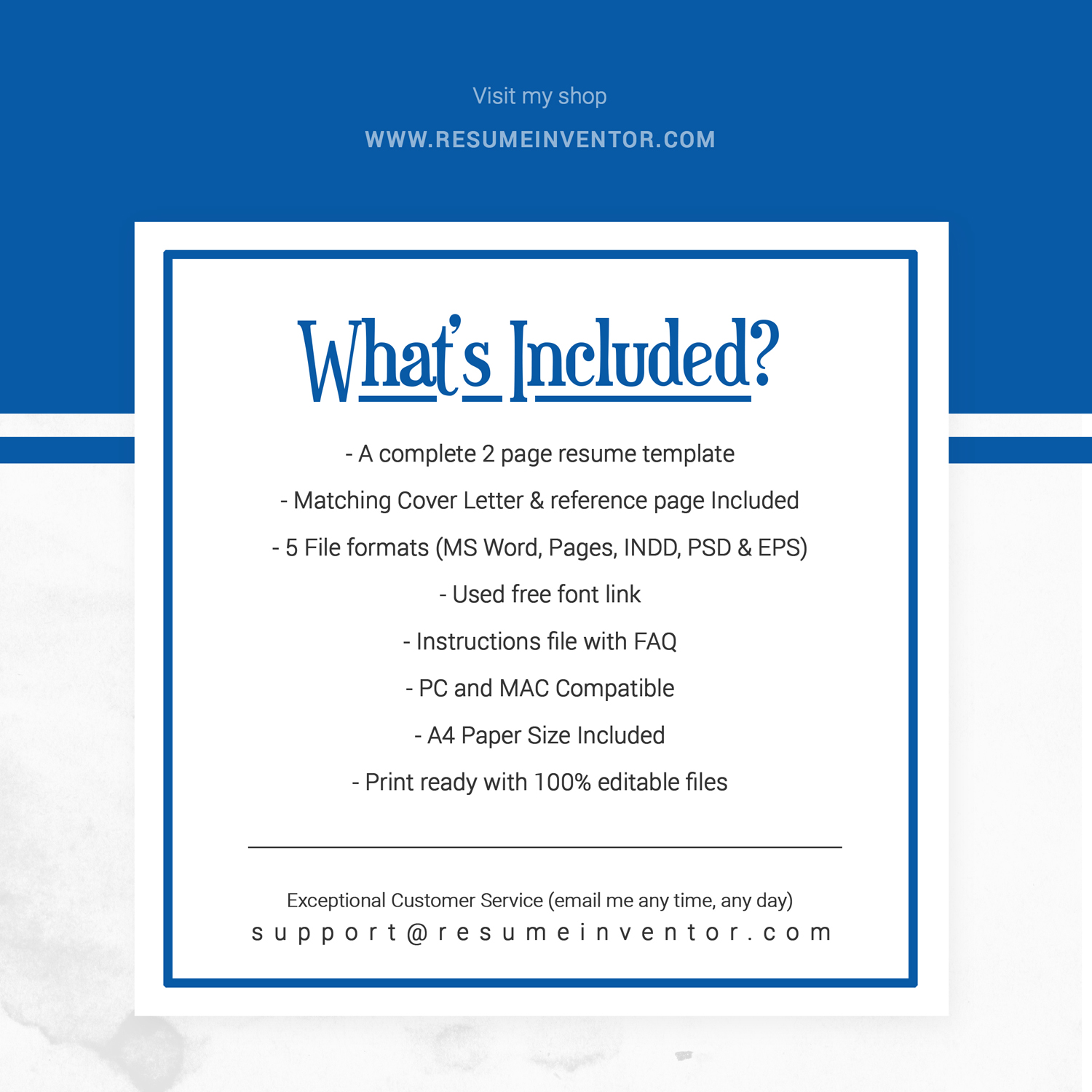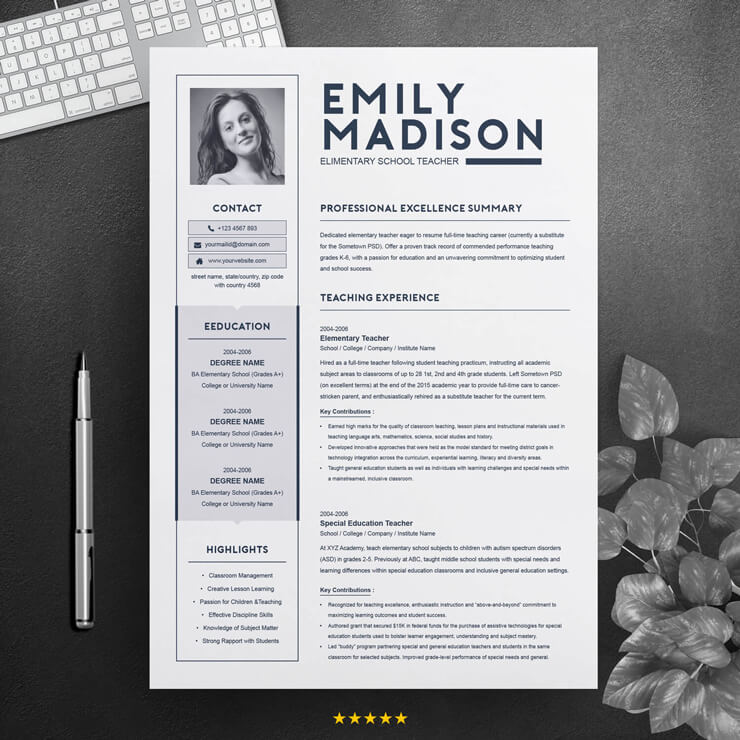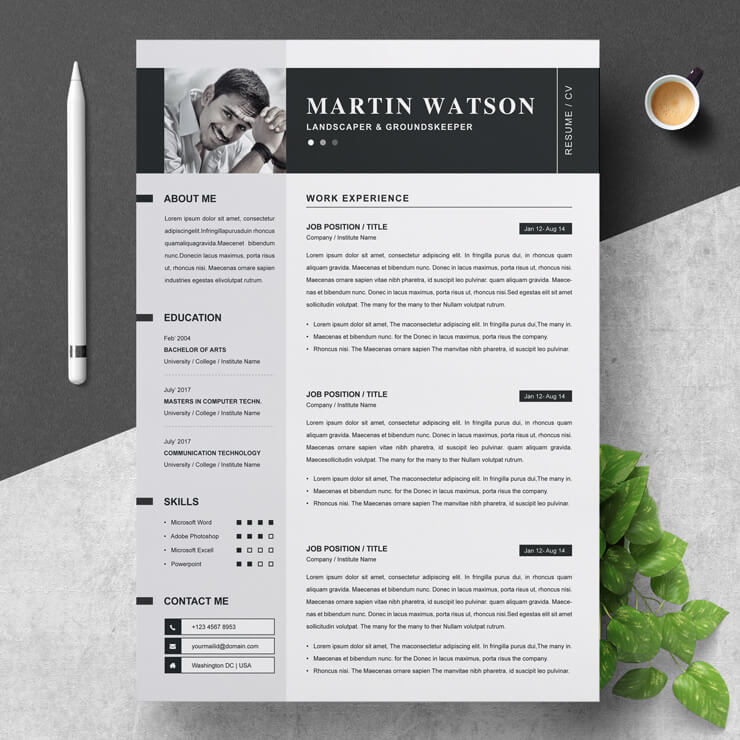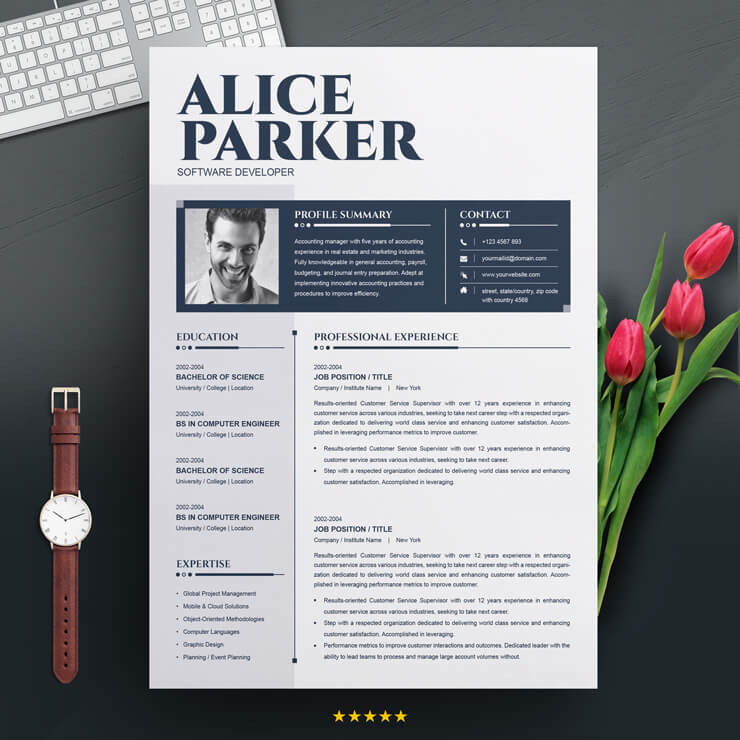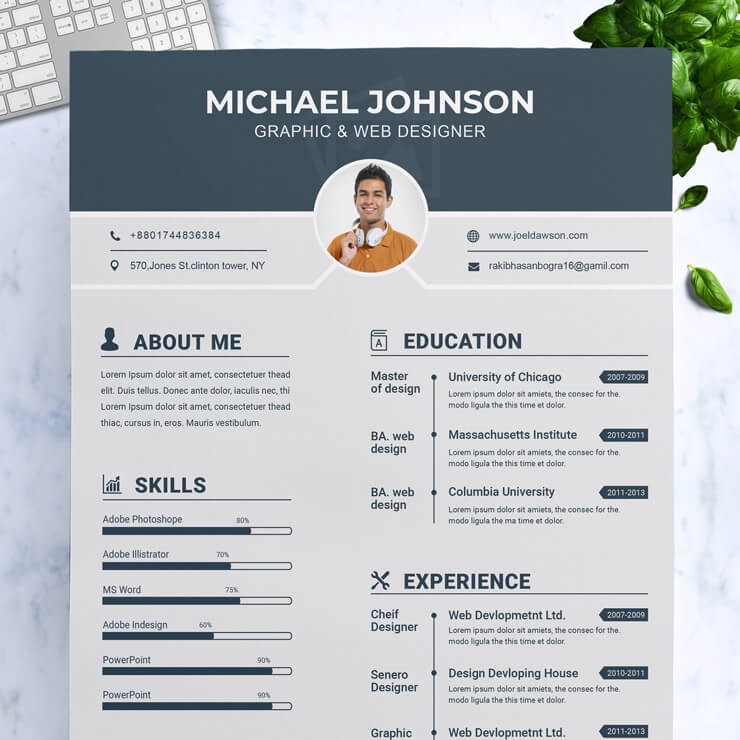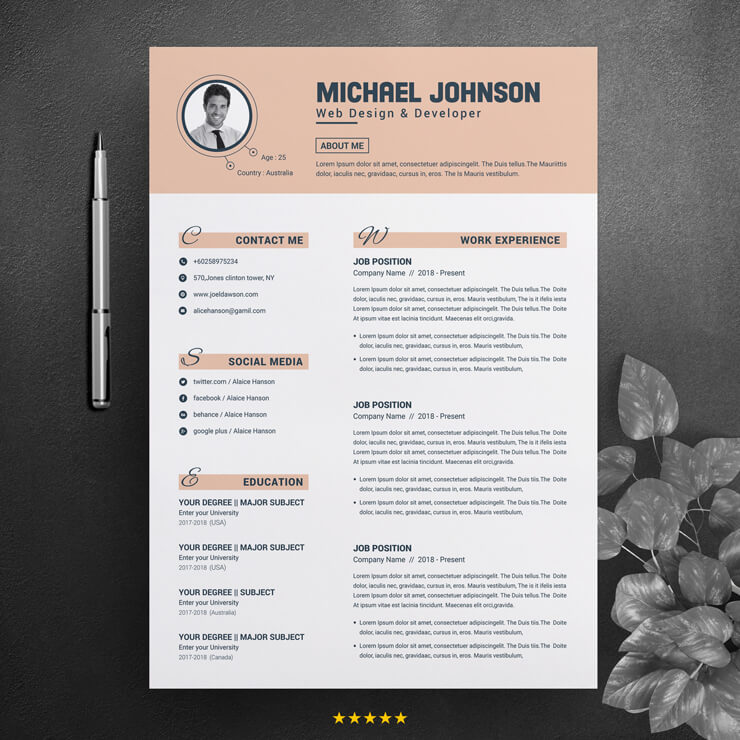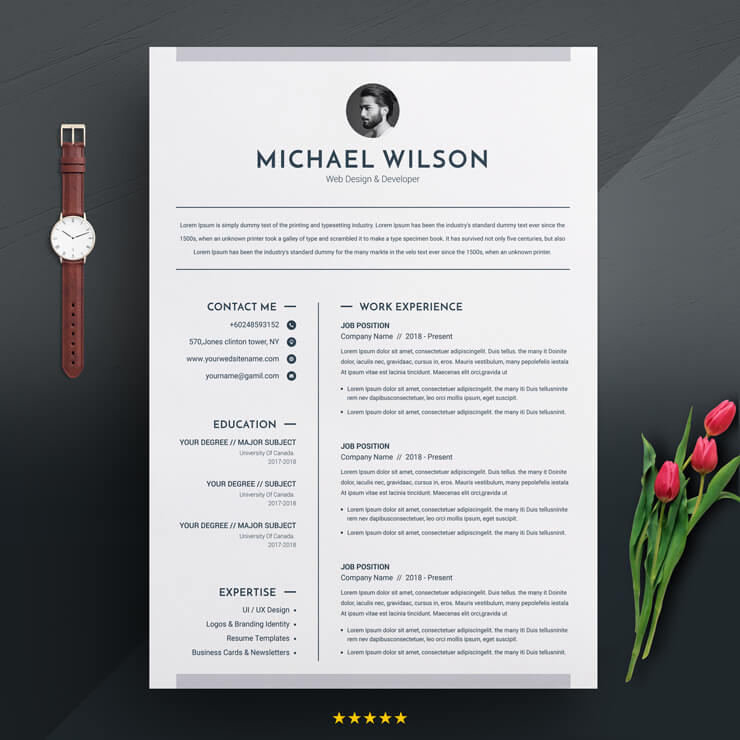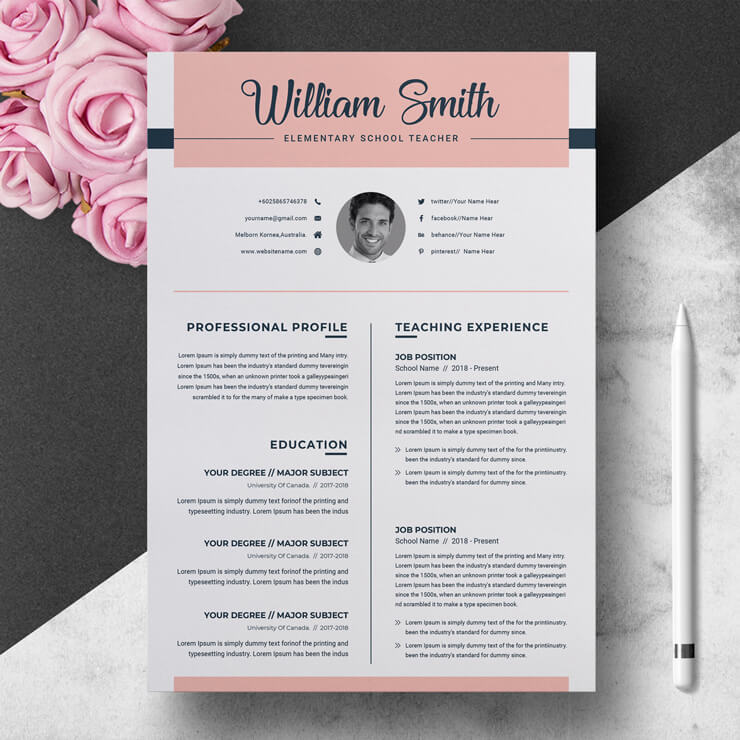Registered Nurse CV Template With Cover Letter & Writing Tips
The Registered Nurse CV Template is a professional document that shows nurses’ unique skills and qualifications. With a cover letter, it looks like a complete, well-done package that makes a strong case to employers. This template is helpful for people who want to become nurses because it is easier to customize and helps them stand out in a competitive job market. This increases their chances of getting their dream nursing job.
What Is a Registered Nurse?
A Registered Nurse (RN) is a health care worker who has completed the education and training needed to get a nursing license and is registered with the nursing regulatory body in their country or state. RNs are vital in the healthcare industry, providing direct patient care, promoting wellness, preventing illnesses, and treating different medical conditions.
What Does a Registered Nurse do?
A registered nurse (RN) performs various duties in the healthcare field. Here is a point-by-point breakdown of what a registered nurse does:
- Conduct patient assessments: RNs assess patients by gathering information about their medical history, symptoms, and condition.
- Monitor patients: RNs observe patients’ vital signs, symptoms, and overall condition.
- Administer treatments and medications: RNs give patients the treatments, medications, and therapies that their doctors have prescribed.
- Coordinate patient care: RNs play a crucial role in coordinating and managing patients’ overall care. They work with other healthcare professionals to create and implement care plans.
- Educate patients and families: RNs educate and guide patients and their families about their health conditions, treatment plans, and self-care techniques.
- Offer emotional support: RNs provide emotional support to patients and their families during challenging times. They offer comfort, empathy, and a listening ear.
- Communicate with the healthcare team: RNs effectively communicate with physicians, other nurses, and healthcare professionals to ensure proper care coordination.
- Request medical tests: RNs can request and interpret medical tests to assist in diagnosing and monitoring patients’ conditions.
- Implement physicians’ treatment plans: RNs work alongside physicians to implement and carry out the treatment plans prescribed by the doctors.
- Ensure adherence to policies and standards: RNs are responsible for ensuring that patient care complies with the policies and standards set by their employer and regulatory bodies.
- Work in various healthcare settings: RNs can work in hospitals, clinics, nursing homes, schools, corporate environments, and even as flight nurses.
- Pursue advanced practice roles: RNs can become nurse practitioners, nurse anesthetists, or nurse midwives with additional training.
How to Write a CV for a Registered Nurse
Writing a CV (Curriculum Vitae) for a Registered Nurse is crucial to showcase your qualifications, skills, and experience to potential employers. A well-crafted CV can significantly increase your chances of landing an interview. Here’s a step-by-step guide on how to write a compelling CV for a Registered Nurse:
Choosing the Best CV Format for Registered Nurse
When creating a CV (Curriculum Vitae) for a Registered Nurse position, choosing a format that showcases your qualifications, experience, and skills effectively is essential. Here are three popular CV formats, along with explanations of when they might be most suitable for a Registered Nurse:
Reverse Chronological Format:
The reverse chronological format is the most common and widely used CV format. It focuses on your work history in reverse chronological order, starting with your most recent job and going backward. This format is ideal for nurses with a solid work history and relevant experience, as it highlights your career progression and demonstrates your current expertise.
When to use:
- You have several years of nursing experience in different roles or healthcare settings.
- Your work experience aligns with the job you’re applying for, and you want to showcase your career advancement.
Functional Format:
The functional resume format places greater emphasis on your skills and qualifications rather than your work history. It allows you to highlight your nursing skills and accomplishments without emphasizing the specific timeline of your experience. This format is beneficial if you have gaps in your work history, are changing careers, or want to emphasize your skills more prominently.
When to use:
- You’re a new graduate with limited work experience as a Registered Nurse.
- You have gaps in your work history that you prefer to avoid emphasizing.
- You want to highlight specific nursing skills and achievements.
Combination Format:
As the name suggests, the combination format is a mix of the reverse chronological and functional formats. It provides a balance between showcasing your work history and emphasizing your skills. This format suits experienced nurses who want to highlight specific achievements and relevant skills.
When to use:
- You have a solid work history with notable accomplishments and relevant experience.
- You want to showcase your skills in addition to your work experience.
- You are applying for a position that requires a specific set of skills or expertise.
Create a Professional Registered Nurse CV Header
To create a professional registered nurse CV header, follow these guidelines:
- Start with your basic information: At the top of your CV, include your name in larger font size. This should be the most prominent element of your header.
- Contact information: Specify your location, contact information, and phone number. Make sure your contact information is up-to-date and professional.
- RN credentials: After your name in the header, add your RN credentials. This helps to highlight your professional qualifications.
Here’s an example of a professional registered nurse CV header:
- Isabella Thompson, RN
- 123 Main Street, New York, NY 10001
- Phone: (123) 456-7890
- Email: isabella.thompsonrn@email.com
- LinkedIn: linkedin.com/in/isabellathompsonrn
Write a Registered Nurse CV Summary
When writing a Registered Nurse CV summary, it’s essential to highlight your relevant experiences, skills, and achievements. Here are some tips and examples to help you create an effective summary:
- Keep it concise: A CV summary should be a short section at the top of your CV that gives an overview of your qualifications and what you can bring to the job.
- Focus on your key strengths: Showcase the skills and experiences that make you a good fit for the nursing job and make you a strong candidate.
- Tailor it to the job: Customize your summary to align with the specific requirements of the job you’re applying for. Use keywords and phrases from the job description to demonstrate your fit for the role.
- Include your qualifications: Mention your nursing credentials, such as your degree, certifications, and any specialized training or areas of expertise.
- Highlight your achievements: Showcase any notable accomplishments or contributions you’ve made in previous nursing roles. This could include improvements in patient outcomes, successful implementation of protocols, or recognition for exceptional patient care.
Example of a Registered Nurse CV summary:
“Compassionate and dedicated Registered Nurse with 5 years of experience in providing high-quality patient care. Skilled in critical thinking and effective communication, with a strong ability to assess and respond to patient needs. Proficient in administering medications, monitoring vital signs, and collaborating with interdisciplinary healthcare teams. Recognized for delivering exceptional patient outcomes and maintaining a calm and supportive demeanor in high-pressure situations. BLS and ACLS certified.”
Highlight Your Registered Nurse Skills
When highlighting your registered nurse skills on your resume, it’s important to showcase a combination of hard and soft skills that demonstrate your expertise in patient care and ability to work effectively in a medical setting. Here are some valuable nursing skills to include:
- Clinical nursing skills: Adhered to strict hygiene standards, accurately administered medications, and monitored vital signs for a caseload of 20 patients.
- Patient care: Provided compassionate and empathetic care, responding to patients’ emotional and physical needs and ensuring their safety and well-being.
- Record keeping: Maintained accurate and detailed patient records, documenting medical histories, treatment plans, and progress notes.
- Teamwork: Collaborated effectively with interdisciplinary healthcare teams to develop and implement comprehensive care plans.
- Time management: Prioritized tasks, managed multiple patients, and ensured timely care delivery in a fast-paced environment.
- Communication skills: Effectively communicated with patients, families, and healthcare professionals, providing clear and concise information and instructions.
- Critical thinking: Assessed patient conditions, made informed decisions, and implemented appropriate interventions to optimize patient outcomes.
- Leadership skills: Served as a charge nurse, overseeing and guiding a team of nurses and providing mentorship and support.
Add Your Work Experience to the Registered Nurse CV
When adding your work experience to a Registered Nurse CV, it’s important to highlight your relevant nursing experience, skills, and accomplishments. Here are some tips and examples to help you:
- Include your job title, employer’s name and location, and dates of employment. This provides a clear overview of your work history.
- Describe your nursing responsibilities and duties using bullet points. Focus on your specific tasks and procedures, such as administering medications, monitoring patients, and providing patient education.
- Highlight your years of nursing experience. This gives employers an idea of your level of expertise.
- Include any relevant certifications or career achievements. This demonstrates your commitment to professional development and showcases your accomplishments in the field.
- Use action verbs to describe your nursing experience, such as “administered,” “assessed,” “collaborated,” and “implemented”. This adds impact and shows your proactive approach to patient care.
- Quantify your achievements whenever possible. For example, mention the number of patients you cared for, the success rates of your interventions, or any awards or recognition you received.
- Tailor your CV to the job description by including keywords and phrases mentioned in the job posting. This helps to align your experience with the specific requirements of the role.
Here is an example of how to format your work experience section on a Registered Nurse CV:
Registered Nurse
- Hospital Name, City, State
- Dates of Employment
- Administered medications, monitored vital signs, and provided direct patient care to a diverse population of patients.
- Collaborated with interdisciplinary healthcare teams to develop and implement individualized care plans.
- Assessed patient conditions, identified changes in health status, and initiated appropriate interventions.
- Educated patients and their families on disease management, treatment plans, and self-care techniques.
- Maintained accurate and detailed patient records, ensuring compliance with regulatory standards.
Customize your CV to highlight each job application’s most relevant experiences and skills.
Add Your Education Sector to the Registered Nurse CV
When adding the education sector to a Registered Nurse CV, it is important to highlight your qualifications and certifications organizationally. Here are some tips and formatting examples:
- Education Section: Start with your highest degree and list your degrees in descending order. If you have multiple degrees, list the most relevant one first.
Example: Bachelor of Science in Nursing (BSN), XYZ University, City, State, Year
- Licensure: Include your nursing license in the education section after your degrees.
Example: Registered Nurse (RN), State Board of Nursing, Year
- Certifications: If you have additional certifications relevant to your nursing career, you can create a separate section titled “Certifications”.
Example: Basic Life Support (BLS) Certification, American Heart Association, Year
Add Other Sections to Your Registered Nurse CV
When adding other sections to a Registered Nurse CV, it is important to highlight your language skills, achievements and awards, volunteer work, and interests in an organized manner. Here are some tips and formatting examples:
- Language Skills: If you are bilingual or proficient in another language, you can create a separate “Language Skills” section.
Example:
-
- Spanish: Fluent
- English: Advance
- Achievements and Awards: Include any relevant achievements and awards you have received in a separate section titled “Achievements and Awards”.
Example: Excellence in Nursing Award, ABC Hospital, Year
- Volunteer Work: If you have volunteered in any healthcare-related organizations, you can create a separate “Volunteer Work” section.
Example: Volunteer Nurse, Red Cross, Year
- Interests: Including your interests can showcase your personality and make you stand out as a candidate. You can create a separate section titled “Interests”.
Example: Running marathons
Registered Nurse CV Example
Here is a Registered Nurse CV sample that you will find in this template package:
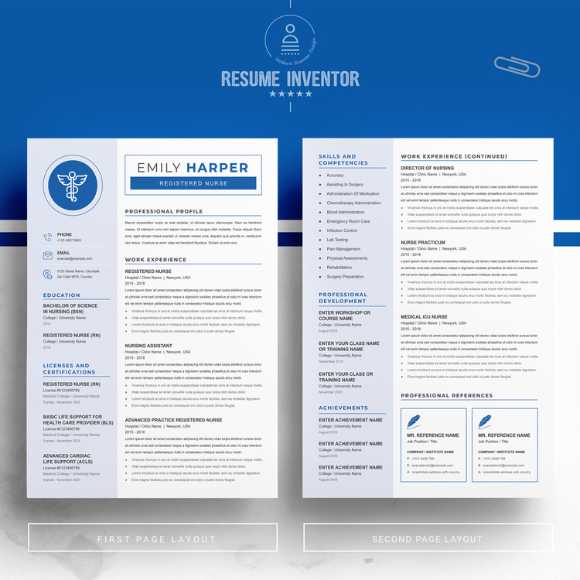 Attach a Registered Nurse Cover Letter
Attach a Registered Nurse Cover Letter
To attach a Registered Nurse cover letter, here are some tips and an example to guide you:
Tips for Writing a Registered Nurse Cover Letter:
- Use a professional header: Include your name, contact information, and the Date of sending the cover letter.
- Address the hiring manager: Find out the hiring manager’s name and address them directly in the opening paragraph.
- Introduce yourself: Introduce yourself briefly and mention the position you are applying for.
- Highlight your qualifications: Emphasize your relevant skills, experience, and education that make you a strong candidate for the job.
- Showcase your achievements: Include specific examples of your accomplishments and how they relate to the nursing field.
- Demonstrate your passion: Tell them how much you like nursing and how committed you are to giving good care to your patients.
- Tailor the letter to the job: Customize your cover letter to match the requirements and responsibilities of the specific nursing position.
- Keep it concise: Cover letters should be one page long and written in clear, concise language.
- Proofread and edit: Check for grammatical or spelling errors and ensure your cover letter is well-structured and professional.
Registered Nurse Cover Letter Example:
[Your Name]
[Your Address]
[City, State, ZIP Code]
[Email Address]
[Phone Number]
[Date]
[Recipient’s Name]
[Recipient’s Job Title]
[Company Name]
[Company Address]
[City, State, ZIP Code]
Dear [Recipient’s Name],
I am writing to express my strong interest in the Registered Nurse position at [Company Name]. With [number of years] of experience in providing compassionate and high-quality patient care, I have confidence in my ability to help your organization succeed.
In my previous job as a Registered Nurse at [Previous Employer], I gained valuable experience in managing patient care, collaborating with interdisciplinary teams, and ensuring the delivery of safe and effective healthcare services. I am skilled in conducting assessments, administering medications, and providing patient education. Additionally, I have a strong understanding of infection control protocols and possess excellent communication and interpersonal skills.
One of my proudest achievements was implementing a new patient education program that improved patient outcomes and increased patient satisfaction. I am passionate about continuously improving the quality of care and staying up-to-date with the latest advancements in the nursing field.
I am impressed by [Company Name]’s commitment to providing exceptional patient care and its reputation for excellence. I believe that my skills, experience, and dedication align perfectly with the values and goals of your organization.
Thank you for considering my application. I want to discuss how my qualifications make me a strong fit for the Registered Nurse position at [Company Name]. I have attached my resume for you to look over.
I look forward to contributing to the success of your team.
Sincerely,
[Your Name]
Remember to customize the example cover letter to fit your qualifications and the job you are applying for.
Here is a Registered Nurse Cover Letter sample that you will find in this template package:
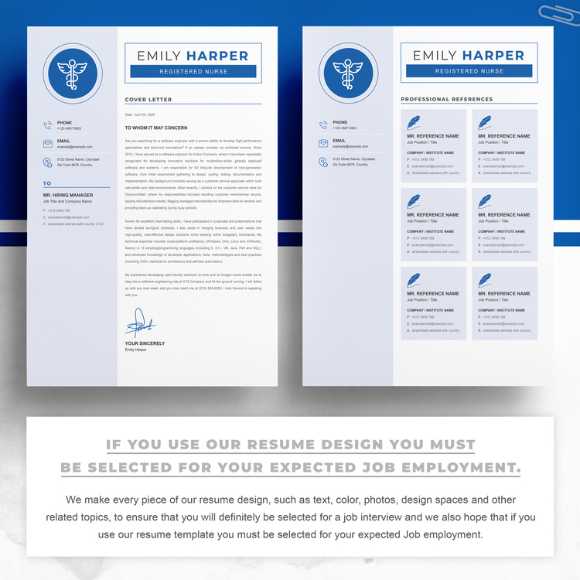 What Are Some Common Mistakes to Avoid When Writing a Nursing Resume?
What Are Some Common Mistakes to Avoid When Writing a Nursing Resume?
It’s important to avoid making common mistakes on your nursing resume that could hurt your chances of getting hired. Here are some mistakes to avoid:
- Including too much personal information: Avoid including personal details such as your marital status, age, or social security number. Stick to relevant professional information.
- Failing to highlight relevant skills and experience: Make sure to emphasize your relevant nursing skills and experience that align with the job requirements. Make sure to change your resume for each job you apply for.
- Using vague or overly general language: Be specific and provide concrete examples of your achievements and responsibilities. Use action words and quantify your accomplishments whenever possible.
- Not optimizing your resume for the job and applicant tracking system (ATS): Customize your resume to match the keywords and requirements mentioned in the job description. Many employers use ATS to screen resumes, so including relevant keywords is important.
- Not proofreading for spelling and grammatical errors: Make sure your resume has no spelling or grammar mistakes. Consider having a friend or colleague proofread it as well.
- Not explaining gaps in employment: If you have gaps in your employment history, explain them. Make sure the reader understands why there are gaps.
- Not including contact information: Ensure that your contact information, phone number, and email address are clearly listed on your resume.
Avoiding these common mistakes can increase your chances of creating a strong and effective nursing resume.
FAQS
How long should a Registered Nurse’s CV be?
A Registered Nurse’s CV should be concise and typically at most two pages. Focus on including the most relevant and recent information about your nursing career.
How should I format my nursing resume?
- Use a professional and clean format.
- Include your contact information, a summary or objective statement, your education and certifications, relevant work experience, skills, and any additional sections highlighting your achievements or qualifications.
What is the preferred order for listing nursing credentials?
The preferred order, according to the American Nurses Credentialing Center (AACN), is highest degree earned, licensure, national certification, state designations, and additional certifications
Should I tailor my CV for different nursing specialties or job applications?
Yes, it’s advisable to tailor your CV for different nursing specialties or job applications. Highlight specific skills, experiences, and qualifications relevant to each position you apply for. Employers are likelier to notice you because of this customization, demonstrating your interest in the particular role.
INCLUDES:
- Cover Letter Template (can also be used as a thank you letter)
- Microsoft Word (.docx) files
- Apple Pages (.pages) files
- Photoshop (PSD) Files
- Illustrator (EPS) Files
- Detailed Instructions file
- A4 Paper Size Included
- Links to free fonts used
- 24/7 hours Fast and friendly customer service
Share Now!
